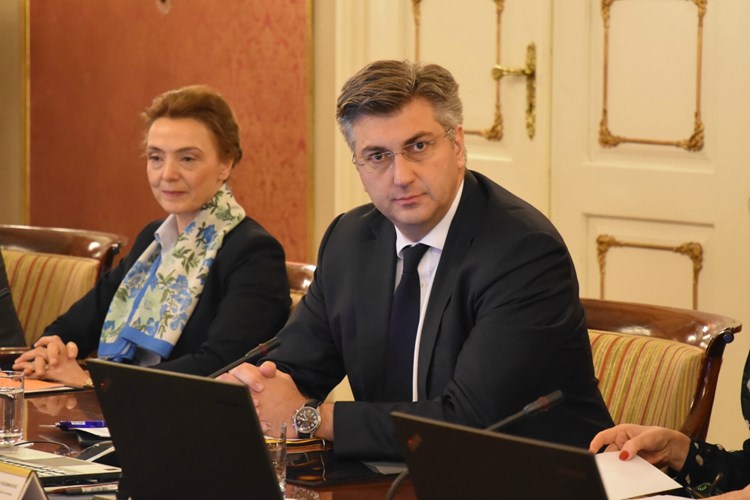- Published: 24.01.2018.
PM Plenkovic: It is essential for the Uljanik restructuring process to continue
Prime Minister Andrej Plenkovic said on Wednesday it was essential for the Uljanik restructuring process to continue, for the government to resume dialogue with MOL regarding the purchase of INA stocks, adding that the Justice Ministry was forming a task force to work on a new Distress Act which should address the issue of citizens with blocked bank accounts.
Commenting on the European Commission's decision to give a go-ahead for the state guarantee for a EUR96 million loan to the ailing Croatian shipyard of Uljanik, Plenkovic said at the start of the government session that this was an expected decision which was the result of intensive dialogue with the Commission.
Plenkovic said it was important that a decision was made to pay out salaries to Uljanik workers. "However, it is essential to continue the restructuring process in Uljanik and find a strategic partner and in that way maintain sustainability, employment and productivity of this important Croatian shipyard," Plenkovic said.
Commenting on the Sisak Oil Refinery, Plenkovic said that Environment Protection And Energy Minister Tomislav Coric explained the government's position to the INA Management Board, regarding the survival of the refinery and the fact that all workers affected by this decision would be offered to adequate jobs elsewhere in the refinery.
Earlier this month, the INA oil company proposed organisational changes in the Sisak refinery which envisaged the transport of products between the Sisak and Rijeka refineries and closing the FCC plant in the Sisak refinery, which will result in a maximum 40 layoffs in the second half of the year.
Commenting on connections between improving economy and higher salaries, Plenkovic said Croatia could be proud of its macroeconomic indicators -- economic growth, reduction of the public debt and deficit, general government budget surplus and upgraded credit ratings.
He also said the average salary in Croatia in November was HRK 6,190, up 6.6% on the year.
Plenkovic also recalled that the government had increased the minimum wage on two occasions.
"The fact that consumption has gone up for the 39th consecutive month, the fact that our unemployment rate is at a record low, that our employment is growing, that in 2018 we are set to further reduce taxes...all of this are measures taken by the government and citizens will feel them," the prime minister said.
Text: Hina
